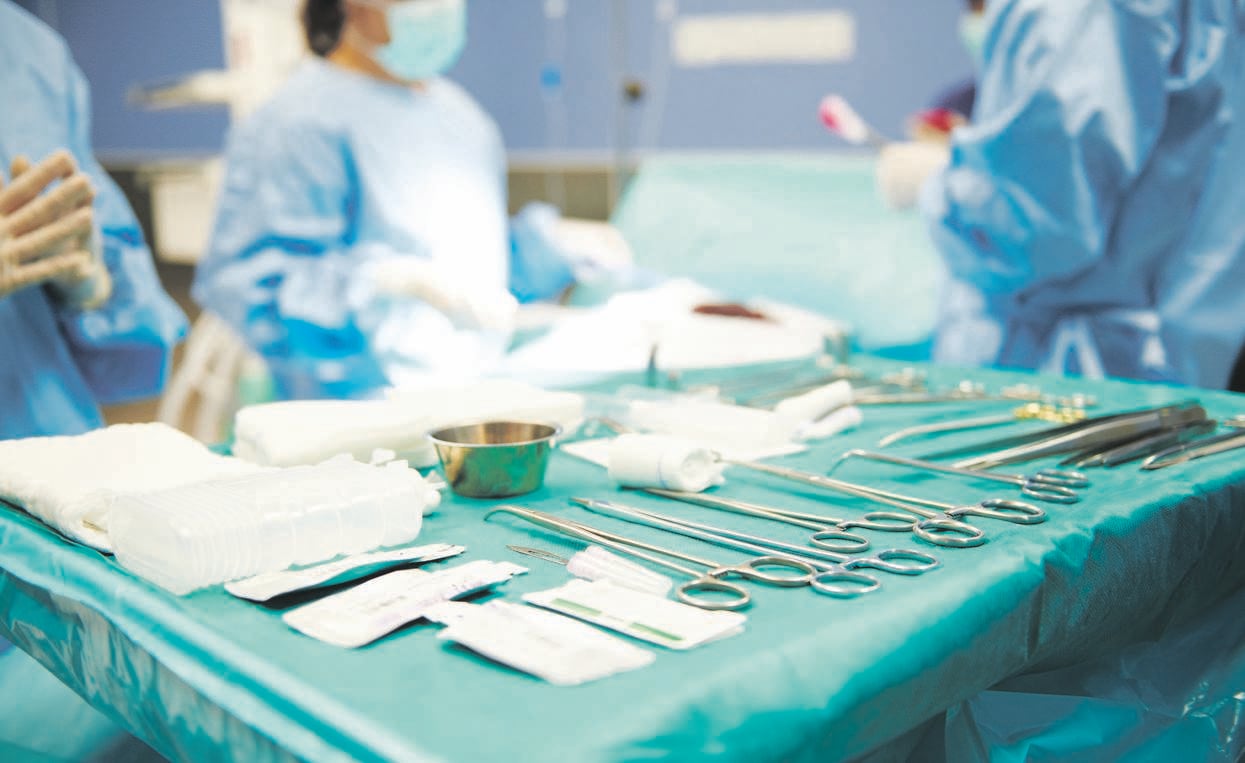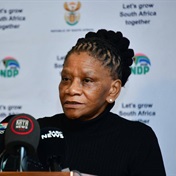
Public health doctors wrongfully performed tubal ligations on 48 women using coercion and on prejudicial grounds, including their HIV status
"The doctor insulted me, shouted at me and told me that I could not get pregnant again because it would be unfair for working citizens to be the ones responsible for paying for our children’s HIV treatment with their tax money.”
This is the chilling testimony of Nokwanda Dladla*, who is among 48 women who were allegedly sterilised without their consent.
Dladla alleges that she only learnt that her Fallopian tubes had been tied after she gave birth to her son 10 years ago at a public hospital in KwaZulu-Natal.
The unemployed 37-year-old was relating her story for the first time after the Commission for Gender Equality released a report on its investigation into forced and coerced sterilisation last week.
The report states that forced or coerced sterilisation in public hospitals of women living with HIV in South Africa is “cruel, torturous, inhumane and degrading treatment”.
In 2015, the chapter 9 institution received a complaint from the Women’s Legal Centre on behalf of feminist organisation Her Rights Initiative and the International Community of Women Living with HIV/Aids (ICW).
The report accounts solely for documented cases of forced or coerced sterilisation in two provinces, with most being from KwaZulu-Natal and Gauteng state hospitals.
“The complainants had their right to quality healthcare and to freedom from discrimination violated. The practice further violated the complainants’ right to dignity, bodily integrity and freedom, and security over their bodies. Every woman has the right to bear children, regardless of their status. To subject women to forced sterilisation because they are HIV-positive is a fundamental human rights violation,” reads the report.
Dladla, who has been living with HIV for almost 20 years, claims that her ordeal happened in 2009, after giving birth to her second child.
She says her main concern at the time was delivering a healthy baby.
Dladla says it was only after she reminded the doctor who had facilitated the delivery to give her new-born nevirapine – an anti-HIV drug that reduces the amount of virus in the body – that she got to know she had been sterilised.
“I remember when the doctor broke the news to me that they had done tubal ligation [a type of permanent birth control in which the Fallopian tubes are cut, tied or blocked] after the delivery of the baby.
“She assured me that it was something temporary and I would conceive again after five years. The doctor told me that their reasons for the sterilisation were that I was HIV-positive and my child and I were going to die anyway, so I couldn’t have more children.
“I felt insulted and discriminated [against] by her statement. I was in pain and I was confused. I don’t remember signing a consent form; if I did sign it, I was under duress. I never had an opportunity to ask what it meant when my tubes were tied.
“All I wanted was for someone to support and comfort me, not someone to discriminate [against me], violate my human rights and instil fear in me.”
Dladla says she feels as though someone took advantage of her situation because she was vulnerable.
Although she was assured that she would be able to conceive again after five years, that wasn’t the case.
After eight years she decided to try for another baby, but she couldn’t conceive.
This, she said, affected her marriage.
“My husband was getting frustrated because he wanted us to try for another child. He started cheating on me and blaming me for being infertile, and he impregnated another woman. He even insisted on taking a second wife, but I refused.”
Dlala says she tried everything to please her frustrated husband, going as far as faking a pregnancy because she had hope that one day she would fall pregnant.
She says she and her husband have spent a fortune on gynaecologists.
They’ve even consulted traditional healers, without any luck.
“My husband and I went to the same hospital that sterilised me and they explained that for me to conceive again I needed to do a procedure to reverse the sterilisation at a private hospital, which would cost at least R40 000 to R50 000. Unfortunately, we couldn’t afford the procedure,” Dladla says sombrely.
Thandiwe Gumede* (41), from Durban, will never forget the ordeal she suffered in 2006.
In our telephonic interview, it’s easy to pick up that Gumede is not a woman of many words.
The soft-spoken mother of two says: “I didn’t even know what sterilisation meant at that time. I had labour pain and my blood pressure was so high that the doctor recommended that I give birth through a Caesarean section because the baby was too big.”
Gumede says she couldn’t wait to give birth to her baby boy, but was still in pain when she was allegedly forced to sign a consent form, which she did because she was allegedly told that if she didn’t sign it they were not going to attend to her.
“I wasn’t aware that my tubes were tied until I met my ideal man in 2012, who wanted to have a child with me. But after trying multiple times to conceive, nothing was happening. He was even ready to pay lobolo, but when he realised that I was not falling pregnant he changed his mind and left me,” she weeps.
Gumede goes on to explain that three other men have since left her because of her inability to conceive owing to sterilisation.
She is currently dating someone, but says she is not ready to disclose to him about her situation as she is afraid that he might also leave her.
“My life has never been the same and no amount of money will heal the pain they’ve caused me. Someone has to be accountable for this. I just want someone to look me in the eye and say: ‘I am sorry.’ Maybe then I will find closure.”
Jody Lee Fredericks, a legal representative for ICW, told City Press that what happened to these women was horrific and is an indication of the power imbalance between healthcare practitioners and the women who depend on state healthcare.
“These women were left powerless; they did not have the ability to decide for themselves, someone else made decisions for them. It has been a long road for them. They deserve justice,” Fredericks said.
However, she said that the women were pleased that the commission listened, investigated thoroughly and found that their rights were violated by the national health department.
Fredericks explained that the department ought to take responsibility and be held accountable for human rights violations.
“We will be asking for compensation for sterilisation reversals and for these women to have access to a therapist. If the department does not adhere to the commission’s findings, then we will have no choice but to institute legal action against it,” she said.
National health department spokesperson Popo Maja said the ministry was taking the allegations seriously.
“No one is allowed to violate [a person’s] human rights by performing a surgical procedure without [their] consent. As the ministry, we are encouraging the complainants to open a case,” he said.
Maja added that the department was also seeking legal advice on the way forward, with internal investigations set to be conducted.
“Once that is done, we will be in a position to issue a comprehensive media statement.”
*Not their real names.
Gynaecologist and obstetrician Mahloromela Moagi, who has been at Lenmed Zamokuhle Private Hospital in Tembisa for five years, told City Press that sterilisation is a permanent method of contraception. However, he said it is reversible.
Dr Moagi said there were five types of surgical sterilisation: Parkland, Pomeroy, Filshie clips, Irving and Uchida.
“For a reversible sterilisation, the remaining piece of Fallopian tube must measure at least 5cm – then chances of spontaneous pregnancy are about 60%. If it’s shorter than 5cm then the chances of a woman conceiving are very slim,” he said, adding that they use laparoscopy – a minimally invasive surgery in which a fibre optic instrument is inserted through the abdominal wall – to determine the size of the Fallopian tubes.
“Unfortunately, if a woman’s uterus has been removed she will not fall pregnant. She might have to consider surrogacy if she wants to have children.
I have done sterilisation reversal successfully, but one of my patients’ procedure wasn’t a success because the Fallopian tubes were shorter than 5cm. After the procedure, tubes will open successfully but a woman may still struggle to fall pregnant.”
Moagi said the procedure costs between R40 000 and R50 000.
 |
| ||||||||||||
| |||||||||||||




 Publications
Publications
 Partners
Partners








